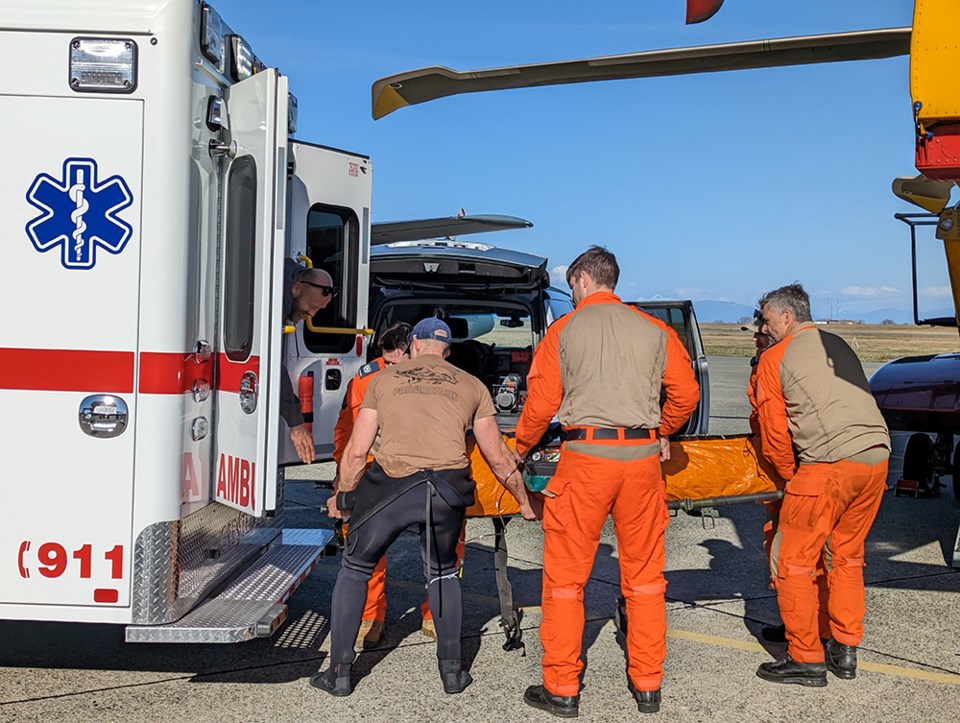At around 3 pm on March 30, Joint Rescue Coordination Centre (JRCC) Victoria tasked the Royal Canadian Air Forces’ (RCAF) 442 Transport and Rescue Squadron from Comox to respond to a capsized vessel east of Texada Island, in the Strait of Georgia, off Vancouver Island.
According to captain Christine MacNeill, 19 Wing public affairs officer, two people and a dog were on board, including an 87-year-old man who had been hanging on to the overturned vessel.
MacNeill stated in a written release that already airborne in the vicinity was 442 Squadron Cormorant helicopter 906 with an instructor pilot and a student on their first Cormorant trip under instrument flight rules.
“Although search and rescue technicians were not on board, given it was a training flight, JRCC tasked Rescue 906 to get their eyes on the people in distress while a second Cormorant with SAR-techs on board was making its way to the scene,” stated MacNeil. “The JRCC always has the option of tasking any RCAF asset to assist Canadians in distress.
“This was a great example of the robustness and quality of crew training that are not only trained to do a specific job, but can respond to other situations like this one in a safe and effective manner.”
MacNeil stated that once Rescue 906 arrived, they found the people in distress had let go of the boat after exhaustion and drifted for 45 minutes in frigid water until they ended up on a steep rocky shore. The crew of Rescue 906 quickly determined that the 87-year-old needed immediate assistance, she stated.
“The flight engineer and one of the pilots sprang into action and used the rescue basket to retrieve the two people and their dog; a 150-foot hoist off the rocky shore,” stated MacNeil. “They then started warming up the patients until the other Cormorant joined them and escorted them back to Comox.
“Upon landing at 19 Wing, several SAR-techs swarmed the aircraft to attend to the patients in serious condition. The SAR-techs’ effective care quickly turned the table and stabilized the patients.”
MacNeil stated that the two patients were taken to the local hospital via an airbase ambulance from 21 Canadian Forces health services. As dogs were not permitted in the hospital, a military police member who was on shift took it upon himself to keep the dog with him at the station until the patients were released, according to MacNeil.
“Thanks to this amazing teamwork,” stated MacNeil, “two people and their dog are safe and sound and will soon rejoin their families.”


